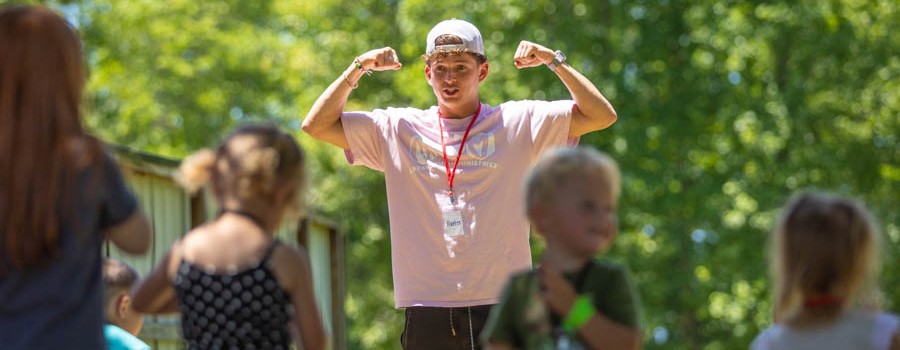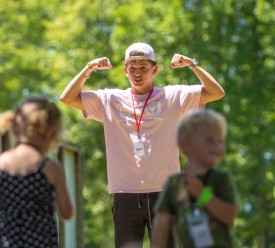When you teach children how to care for themselves, you change their lives for the better.
Everyone needs to know the basics of how to care for their own health and physical wellbeing. But how can we understand those things unless we're taught? By becoming a health teacher, or physical education teacher, or a combination of both, you'll be one of the best resources for children to learn how to keep themselves healthy. Children learn about the world, teamwork, and their own strengths and abilities through play. By facilitating that "play time" in P.E., you'll help them learn about themselves while they experience new sports and fitness activities. And, of course, teaching health classes will give your students the knowledge they need to care well for their bodies. By improving your communication, technology, and leaderships skills, and by increasing your knowledge of the human body and how it functions, you'll be able to excite and inspire children to become and stay healthy.
By the Numbers
$61,820
5%
1 in 5
16:1
Programs & Requirements
* The credit hours listed on this page only reference the specific program requirements and is not reflective of the total hours necessary to receive your degree. Cumberlands requires all students obtain a minimum of 60 hours for an associate’s degree and a total of 120 hours for a bachelor’s degree. Transfer and prior learning credits may be counted toward those totals.
To learn more about our General Education Requirements, please visit the page referenced below or explore our Academic Catalog.
Bachelor of Science in Health & Physical Education
If you want to become a health teacher, phsyical education teacher, or a combination of both, then this is the degree program for you. University of the Cumberlands' bachelor's degree program in health and physical education will lay the groundwork you need to become an impactful teacher. From wellness initiatives in youth to best practices in teaching for young minds and bodies, your classes will cover all the essentials.
Course Requirements
- HESS 233 - Functional Human Anatomy and Physiology
- HESS 234 - First Aid and Safety
- HESS 330 - Influences on Contemporary Issues in Health and Performance
- HESS 333 - Nutrition
- HESS 430 - Substance Abuse
- HLTH 130 - Foundations of Health Science
- HLTH 338 - Relationships and Human Behaviors
- HLTH 432 - Community and Environmental Health
- HLTH 437 - Secondary and Lifespan Health Education
- HLTH 438 - School Health Education
- ESS 131 - Introduction to Health, Exercise and Sport Science
- ESS 230 - Growth and Movement Development
- ESS 330 - Kinesiology
- ESS 432 - Physical Education for the Middle and Secondary School
- ESS 433 - Physical Education for the Elementary School
- ESS 435 - Physiology of Exercise
- ESS 437 - Tests and Measurements
Students seeking teacher certification in Health Education and Physical Education must also take 42 hours of professional education courses. Students seeking Certification in P-5 Elementary Education must take HLTH 438 as part of the related studies requirement. View academic catalog for details.
A Bachelor of Arts degree requires completing the same courses as a Bachelor of Science with the addition of completing one foreign language sequence through the intermediate level.
- FREN 131 Elementary French I
- FREN 132 Elementary French II
- FREN 231 Intermediate French I
- FREN 232 Intermediate French II
- SPAN 131 Elementary Spanish I
- SPAN 132 Elementary Spanish II
- SPAN 231 Intermediate Spanish I
- SPAN 232 Intermediate Spanish II
Take the Next Step
Mission & Goals
The purpose of the School of Education is to develop entry level education students into highly qualified, knowledgeable and caring teachers. We provide training and experiences using best practices for teacher education candidates.
Health & Physical Education Careers & Outcomes
All stats from U.S. Bureau of Labor Statistics
High School Teacher: $61,820
High School Teacher: $61,820
High school teachers teach academic lessons and various skills that students will need to attend college and to enter the job market.
Fitness Instructor: $40,700
Fitness Instructor: $40,700
Fitness trainers and instructors lead, instruct, and motivate individuals or groups in exercise activities.
Middle School Teacher: $61,320
Middle School Teacher: $61,320
Middle school teachers educate students, typically in sixth through eighth grades.
Health Education Specialist: $48,860
Health Education Specialist: $48,860
Health education specialists develop programs to teach people about conditions affecting well-being. Community health workers promote wellness by helping people adopt healthy behaviors.
Coach or Scout: $38,970
Coach or Scout: $38,970
Coaches teach amateur or professional athletes the skills they need to succeed at their sport. Scouts evaluate athletes as possible recruits.
Recreation Worker: $29,680
Recreation Worker: $29,680
Recreation workers design and lead activities to help people stay active, improve fitness, and have fun.
Common Questions
A health and physical education degree prepares students to teach children about health, fitness, and physical well-being. It combines knowledge of the human body with skills in communication, leadership, and coaching to help children live healthier lives.
A bachelor’s degree in health and physical education typically requires 120 credit hours and takes about four years to complete. The specific program requirements may vary depending on the institution.
Yes, many institutions offer online health and physical education degrees, providing flexibility for students who need it. Online programs allow students to complete coursework remotely while still covering essential teaching and health topics.
A degree in health and physical education is valuable for those passionate about teaching and promoting healthy lifestyles. It opens doors to rewarding careers in education, coaching, and health education, with a growing demand for professionals in these fields.
With a health and physical education degree, you can pursue careers as a physical education teacher, health education specialist, fitness instructor, coach, or recreation worker. These roles allow you to help others improve their health and fitness through education and physical activity.
To earn a health and physical education degree, you need to complete the required coursework, which includes topics in health, exercise science, and education. Programs are available both on-campus and online, with options for bachelor’s degrees.
Per the standards set by Kentucky EPSB, “Candidates [for student teaching] in Kentucky are required to complete a minimum of 200 field experience hours prior to student teaching.” Each education course contains a prescribed number of field experience hours. Some courses will have more than others, and courses with more hours are distributed toward the end of the program. Before student teaching, the hours completed in courses will be 200 or more. It's hard to measure an average per semester, since it will depend on the courses you take, but rest assured that you will be able to complete all your necessary hours by the time you graduate.
Yes, physical education is a good major for those interested in teaching, coaching, and promoting healthy living. It offers a balance of theoretical and practical knowledge, leading to fulfilling careers in education, fitness, and health advocacy.
Yes! University of the Cumberlands' School of Education is accredited through Kentucky's Educational Professional Standards Board (EPSB) and has national accreditation through the Council for Accreditation of Educator Preparation (CAEP) at the initial-licensure level and advanced-level. UC’s School of Education has earned national accreditation by demonstrating excellence in the areas of content and pedagogy, clinical experiences, selectivity, program impact, and capacity for continuous improvement.
Faculty Experts in Health & Physical Education
Learn more about the health professors you'll be interacting with.
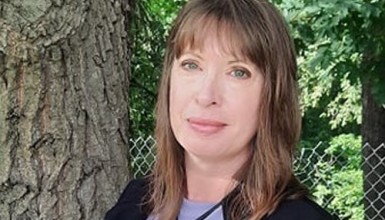
Julia Chaney
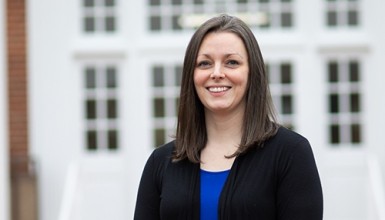
Dr. Elizabeth Christopher
Dr. Elizabeth Christopher
Contact Information
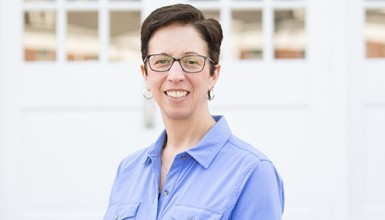
Heather Killian
Request Information
Want some more information about Cumberlands or this program? Ask away!
